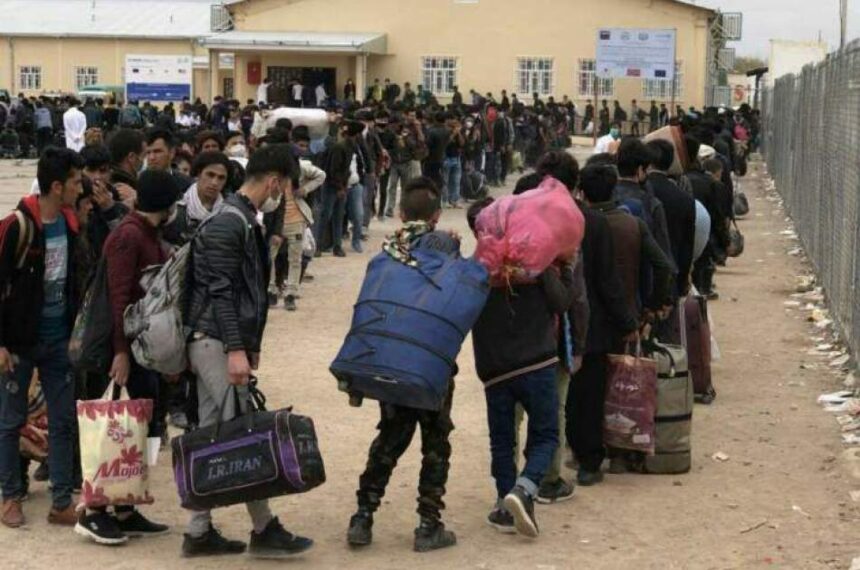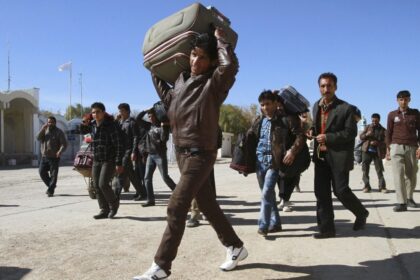RASC News Agency: Amid an escalating wave of forced deportations of Afghanistani migrants from neighboring countries particularly Iran and Pakistan disturbing reports have surfaced revealing the Taliban’s harsh and intrusive security measures targeting returning individuals at border crossings. Numerous deportees from Iran have reported that the Taliban’s Intelligence Directorate systematically collects biometric data at critical border checkpoints, including Islam Qala in Herat and the Silk Bridge crossing in Nimroz province. This intrusive practice has generated widespread alarm among human rights advocates, international organizations, and the families of returnees, who fear it serves as a prelude to targeted repression.
Local sources and eyewitnesses across Nimroz, Herat, and Kandahar provinces confirm that the Taliban detain returnees at special registration centers where biometric information is meticulously gathered. This data encompasses fingerprints, facial photographs, and detailed personal identifiers such as names, places of birth, residences, and, most ominously, records of prior employment particularly within former government institutions and security agencies. Reliable insiders assert that the Taliban’s intent extends far beyond administrative registration. These biometric operations are explicitly designed to identify individuals with past affiliations to the former Afghanistan’s government’s military, police, or intelligence services, making them prime targets for persecution.
Despite the Taliban’s initial promises of blanket amnesty upon seizing power, a growing body of evidence documents widespread arbitrary arrests, torture, enforced disappearances, and extrajudicial punishments inflicted on former government employees, especially those with security backgrounds. Numerous returnees subjected to biometric registration have since vanished under suspicious circumstances, held “for investigation” without due process, leaving their families in agonizing uncertainty and despair. International human rights organizations, notably Amnesty International and Human Rights Watch, have repeatedly cautioned that the Taliban weaponize biometric technology acquired following the collapse of the republic to systematically track and suppress dissent. Their recent joint report starkly warns: “Returnees, particularly those with prior security affiliations, face an imminent and heightened risk of egregious human rights abuses. Biometrics is not a neutral administrative tool; it is a mechanism of control and repression.”
The Taliban’s pervasive use of biometric surveillance to identify and monitor former security personnel among the forcibly returned migrants represents not only a gross violation of individual rights but also a flagrant breach of international humanitarian law and human rights conventions. This state-sanctioned intrusion into personal freedoms exacerbates an already dire humanitarian crisis and reinforces a climate of fear and oppression that stifles any hope for national reconciliation or justice. As thousands of Afghanistani migrants are coerced back into a country where their safety is gravely imperiled, the international community including the United Nations, human rights watchdogs, and governments that previously engaged with Afghanistan bears an urgent responsibility to rigorously oversee these repatriation processes. Ensuring protection, transparency, and accountability is paramount to prevent the Taliban’s biometric system from becoming a deadly instrument of political repression.
Absent sustained international scrutiny and pressure, the Taliban’s biometric apparatus will continue to serve as a sinister tool for persecution, cementing their regime’s brutal control and perpetuating cycles of violence, fear, and systematic denial of fundamental rights.






